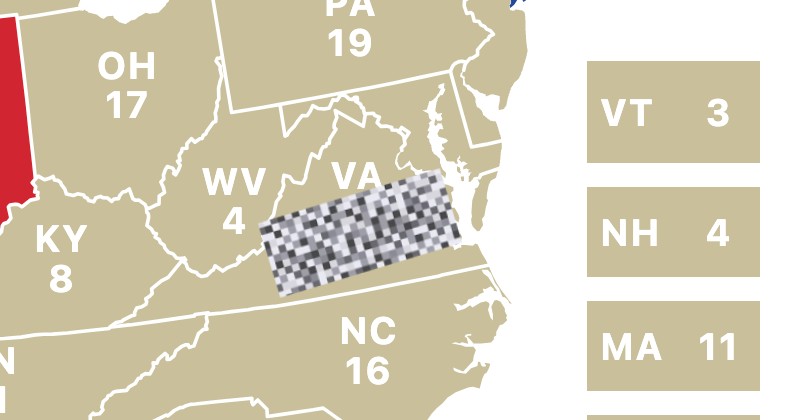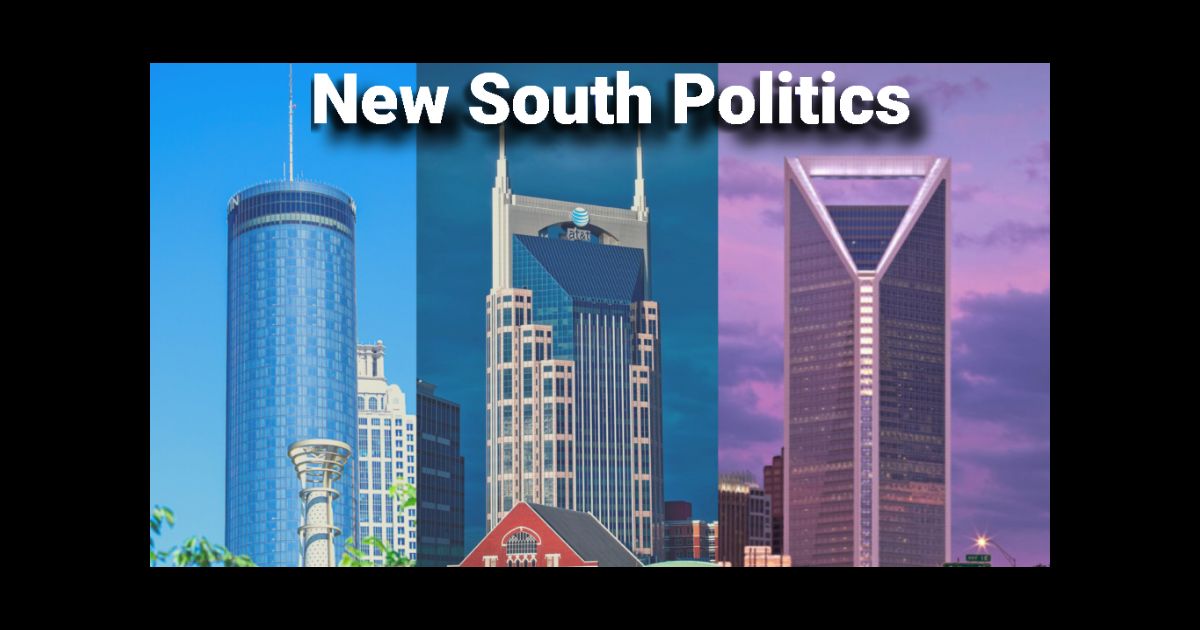
As anyone with an email address or cell phone knows, Republicans and Democrats have ramped up their November battle.
The near-term focus has meant Democrats concentrating on Getting Out the Vote and Republicans placing a new emphasis on Election Integrity.
What conservatives are ignoring, however, is the Left’s look over the horizon with a progressive plan to ensure future Republican presidential defeats.
That plan and its future implications will be discussed by Save Our States Distinguished Fellow Michael Maibach at an October 1 Federal Policy Dinner in Tysons Corner. You can register by clicking here.
The progressive National Popular Vote proposal would make Virginia part of an interstate compact in which Virginia would be forced to give its Electoral College votes to whoever wins the national popular vote – regardless of how Virginians vote in future presidential elections.
With more than half of America’s population in just nine states, it would mean Virginians cede their decision to states like California, New York, Illinois, and Michigan. New York City alone, with a population larger than 39 states, would have an outsized influence on choosing the president.
This is precisely one of the reasons America’s Founding Fathers organized presidential elections with an Electoral College: To prevent the power of larger states from overwhelming the influence of smaller ones.
That balance has worked well for 237 years, even if the victor didn’t always receive the most votes. Five times, presidents have been elected with less than a plurality; 19 times with less than a majority … including John Quincy Adams, John F. Kennedy, Woodrow Wilson, Harry Truman and a fellow named Abraham Lincoln.
Now ostensibly, the case being made by progressives is one of fairness: Americans should be able to vote directly for their president.
But few Western nations offer that opportunity. Of the 27 European Union countries, only two – Cypress and France — provide for direct elections. The others utilize a parliamentary system in which the head of government is chosen based on the composition of that nation’s legislature: Winston Churchill was never on the ballot for Prime Minister.
Direct popular elections have instead been the domain of such countries as Iran, Nicaragua, Venezuela, Russia, and a host of smaller countries.
Those looking to “democratize” the election would more appropriately duplicate Maine and Nebraska’s “split-vote model,” allocating one electoral vote to whoever wins each congressional district. Yes, the Republican nominee would gain some electoral votes in places like California and New York, but the Democratic nominee would garner electoral votes in states like Alabama and Texas.
But don’t hold your breath. Fairness isn’t the Left’s goal. Victory is … and at all costs.
That’s why Maibach’s talk on October 1 is so important.
NPV organizers are trying to dramatically tear up the method of electing a President without even first obtaining the benefit of a national legislative consensus or even agreement by a majority of states.
A system created by the U.S. Constitution would be ripped apart without going through the annoying trouble of changing the Constitution. Their proposal simply requires a majority of states, representing 271 electoral votes, to agree to give their electoral votes to whoever gets the most national votes.
It’s a proposal guaranteed to exacerbate divisions in the country.
And it will be even worse to administer. Because it does not set a uniform standard and has none of the rules, guidelines, and protections that would exist in a truly nationalized election, results will set off a flurry of lawsuits.
In Virginia, for example, early voting started last Friday. But California early voting does not start until October 7; New York starts October 26. Will voters whose votes have been turned over to a majority decision made in other states have legal standing to sue? Will the type of voting machines state “A” uses give cause to further legal action by residents of state “B” using a different machine, since their votes will now have been decided by a state with different rules and different machines? Will recounts now have to be conducted not in one state but in all states?
If you liked the 2000 Florida recount or the accusations of a stolen election in 2020, you’ll love what the National Popular Vote scheme will do.
Yet, they are close. NPV organizers have secured changes in 18 states representing 209 electoral votes. Here in Virginia, it’s been introduced by Delegate Dan Helmer (D-Clifton). When enough states change their law to guarantee 271 electoral votes, the trigger will be pulled to impose the process on the country.
Trump supporters who contend the 2020 election was stolen haven’t provided the evidence. But in state after state, the election process was legally altered by, before the vote, changing laws and regulations governing those elections – usually without objection from the Republican Party or even the Trump White House. To paraphrase George Washington Plunkitt of Tammany Hall: “They seen their opportunities and they took ‘em.”
Progressives are thinking strategically, looking ahead not at this election but future ones, seeing their opportunities and taking them. Conservatives need to do the same, gather their arguments and make plans to stop the game plan before it moves farther.
Maibach will outline the threat and the strategy at the Thomas Jefferson Institute’s Federal Policy Dinner on October 1. It’s a good place to start fighting back.
Chris Braunlich is Senior Advisor and former President of the Thomas Jefferson Institute for Public Policy. In a past life he was Deputy Commissioner of the Nassau County (NY) Board of Elections. He may be reached at chris@thomasjeffersoninst.org.

